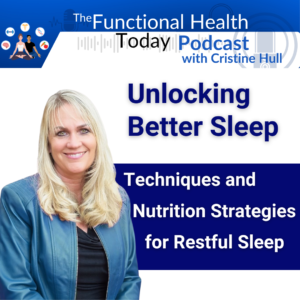What Are the Best Cardio Exercises for Heart Health?
 Cardiovascular exercises are essential for maintaining heart health, as they improve circulation, reduce the risk of heart disease, and help manage blood pressure. Cardiovascular health refers to the health of the heart and blood vessels, encompassing various conditions such as coronary heart disease, stroke, heart failure, heart arrhythmias, and heart valve problems. Here are some of the best cardio exercises for boosting heart health:
Cardiovascular exercises are essential for maintaining heart health, as they improve circulation, reduce the risk of heart disease, and help manage blood pressure. Cardiovascular health refers to the health of the heart and blood vessels, encompassing various conditions such as coronary heart disease, stroke, heart failure, heart arrhythmias, and heart valve problems. Here are some of the best cardio exercises for boosting heart health:
- Running or Jogging
- Benefits: One of the most effective ways to improve cardiovascular health, running or jogging increases heart rate, strengthens the heart muscle, and improves endurance.
- Benefits: One of the most effective ways to improve cardiovascular health, running or jogging increases heart rate, strengthens the heart muscle, and improves endurance.
- Cycling
- Benefits: Whether outdoors or on a stationary bike, cycling is a low-impact exercise that enhances heart health, builds leg strength, and improves circulation.
- Benefits: Whether outdoors or on a stationary bike, cycling is a low-impact exercise that enhances heart health, builds leg strength, and improves circulation.
- Swimming
- Benefits: Swimming is a full-body workout that strengthens the heart, enhances lung capacity, and improves overall cardiovascular function without putting strain on the joints.
- Walking
- Benefits: A low-impact, easy-to-do exercise that still delivers heart health benefits, walking helps reduce cholesterol, lowers blood pressure, and improves circulation.
- Benefits: A low-impact, easy-to-do exercise that still delivers heart health benefits, walking helps reduce cholesterol, lowers blood pressure, and improves circulation.
- Rowing
- Benefits: Rowing is a low-impact exercise that engages the upper body, core, and legs, strengthening the heart and increasing overall cardiovascular health.
- Benefits: Rowing is a low-impact exercise that engages the upper body, core, and legs, strengthening the heart and increasing overall cardiovascular health.
- Jumping Rope
- Benefits: This high-intensity workout improves cardiovascular fitness, enhances coordination, and boosts metabolism, all while strengthening the heart.
- Benefits: This high-intensity workout improves cardiovascular fitness, enhances coordination, and boosts metabolism, all while strengthening the heart.
- Dancing
- Benefits: Fun and engaging, dancing increases heart rate, improves circulation, and enhances overall heart function while also improving balance and coordination.
- Benefits: Fun and engaging, dancing increases heart rate, improves circulation, and enhances overall heart function while also improving balance and coordination.
- HIIT (High-Intensity Interval Training)
- Benefits: Short bursts of intense activity followed by rest periods maximize calorie burn and improve heart health by boosting cardiovascular endurance and increasing metabolism.
Incorporating a mix of these cardio exercises into your routine can promote heart health, increase stamina, and improve overall well-being. Aim for at least 150 minutes of moderate-intensity or 75 minutes of vigorous-intensity cardio per week for optimal heart health.
KEY POINTS
Cardio exercises like running, cycling, swimming, and walking are essential for maintaining heart health, improving circulation, and reducing the risk of heart disease.
High-intensity interval training (HIIT) and activities like dancing or jumping rope offer dynamic ways to enhance cardiovascular fitness while boosting metabolism and endurance.
Regular cardio workouts improve heart and lung function, support better oxygen delivery, and enhance overall stamina, with a recommended goal of 150 minutes of moderate or 75 minutes of vigorous activity weekly.

Pop in your email below, and we’ll zip it straight to your inbox so you never lose it!
How Does Cardio Exercise Improve Heart Health?
Cardio is a great way to get your heart healthy. Engaging in at least 30 minutes of cardio most days per week can significantly enhance your cardiovascular system. Research shows that regular cardiovascular activity improves aerobic fitness and promotes overall health by keeping your heart and lungs strong.
Incorporating high-impact cardio or high-intensity training into your exercise routine maximizes the benefits of cardio. The intensity of the exercise influences how well your heart pumps, delivering a greater amount of oxygen throughout your body. The American Heart Association recommends at least 150 minutes of exercise per week.
Combining cardio with strength training offers many health benefits. By following different approaches to cardio, you can adapt the exercise intensity to match your fitness level. Regularly engaging in 30 minutes of cardiovascular exercise supports a healthier heart, promoting longevity and vitality.
Looking to take control of your weight & nutrition?

How Can You Measure Cardiovascular Fitness?
What Is Target Heart Rate and How Do You Calculate It?
 Target heart rate refers to the ideal heart rate zone during aerobic exercise, crucial for maximizing benefits. To calculate it, subtract your age from 220, then determine the target heart rate zone (usually 50-85% of that number) to optimize moderate to vigorous workouts.
Target heart rate refers to the ideal heart rate zone during aerobic exercise, crucial for maximizing benefits. To calculate it, subtract your age from 220, then determine the target heart rate zone (usually 50-85% of that number) to optimize moderate to vigorous workouts.
Incorporating 30 minutes a day of aerobic activity into your daily routine can significantly enhance physical fitness. Whether you’re new to exercise or an endurance athlete, knowing your target heart rate helps you pick up the pace during high-intensity cardio or maintain a comfortable level during lower-intensity workouts.
Health experts recommend including various types of cardio in your exercise program for balanced fitness. The American College of Sports Medicine suggests that regular exercise should be an important part of any fitness routine to help improve overall health and endurance.
Why Is Monitoring Your Heart Rate Important?
Monitoring your heart rate is crucial during exercise, as it indicates how your body responds to different types of exercise. Engaging in cardio could help your circulatory system by ensuring your heart beats faster during minutes of aerobic activity.
To reap the benefits, aim for three times a week of moderate activity that you enjoy. Cardio also helps increase your life expectancy and overall health. Always check with your doctor before starting a new routine, especially if you plan to exercise for three to seven seconds at a time.
By following strict sourcing guidelines and relies on peer-reviewed studies from academic research institutions, you can ensure that your exercise regimen is both safe and effective. Incorporating 30 minutes of aerobic activity into your week can significantly enhance your well-being.
What Are the Signs of Improved Cardiovascular Fitness?
Improved cardiovascular fitness is often indicated by increased endurance during cardio exercise. Regular activity, such as moderate aerobic workouts, enhances the efficiency of the heart and lungs. Aiming for at least 150 minutes per week of moderate exercise helps engage large muscle groups, promoting overall heart health.
Individuals may notice reduced fatigue and quicker recovery times after exertion. Visiting a medical center can provide insights into fitness progress through assessments and guidance, ensuring that one incorporates beneficial exercise routines effectively.
What Metrics Should You Track to Measure Improvement?
To effectively measure improvement in cardio training, track metrics such as heart rate, duration, and intensity of your cardio activity. Assessing your progress in these areas can provide insights into your overall fitness level.
Incorporating cardio as a regular part of your routine, also called aerobic exercise, can enhance endurance and cardiovascular health. Monitoring changes over time helps identify areas for further improvement.
Looking to get started with cardio? Check out this 15-minute beginner cardio workout that you can do at home without any equipment.











